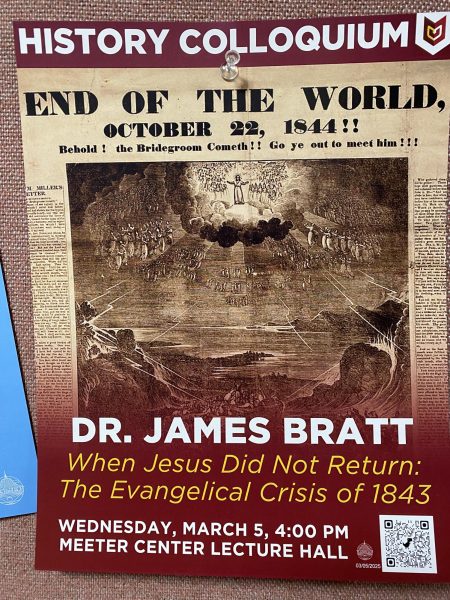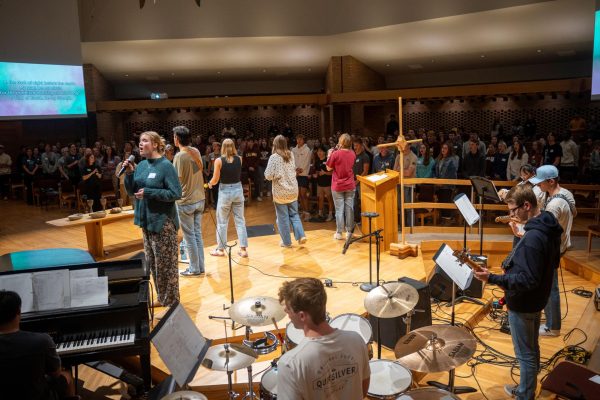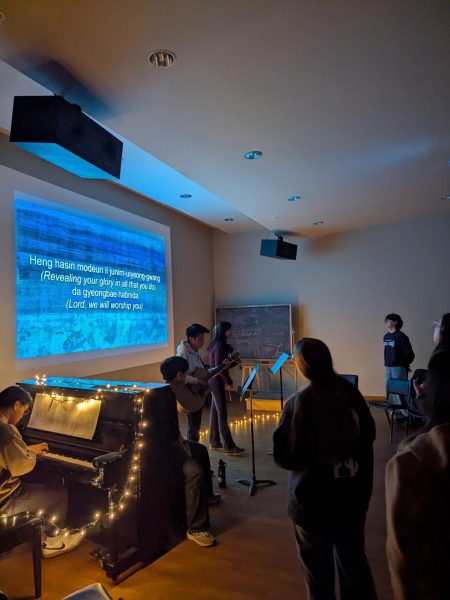Blessings not burden: the account of a Bosnian Muslim
On Thursday, Nov. 10, the Imam of the Bosnian Cultural Center in Grand Rapids, Muaz Redzic, came to the Calvin chapel to speak to local Grand Rapids citizens and members of the Calvin community on his personal experience as a Muslim and and immigrant. He broke up his speech into three separate sections: his life in Bosnia, his life in Kuwait and his life in America. Each place presented its separate challenges for his faith, but he continued to pursue his faith despite all odds.
Imam Redzic spent his entire childhood in Bosnia, a communist country until the aftermath of the Cold War. Residing in a large city in Bosnia, he grew up in a multiethnic and multicultural community. Wanting to follow his father’s footsteps, Imam Redzic pursued Islamic studies and attended an Islamic high school. It wasn’t until Imam Redzic travelled to Kuwait for college that he realized how unique Bosnian Muslims truly were.
The first difference Imam Redzic noticed was the easiness of being a Muslim.
There was much less societal pushback in Kuwait, since being a Muslim was fairly common. In general, the culture of Kuwait was vastly different from Bosnia. Kuwait was a generally wealthier nation due to the oil industry. This resulted in a common disregard for the cost of items and a sense of supremacy. Kuwait was also fairly westernized, drawing a great deal of culture from the United States. This westernization prepared Imam Redzic for his final destination: the United States.
After his time in Kuwait, Imam Redzic returned to Bosnia, and then moved to the United States with his wife and daughter. In Bowling Green, Kentucky, he and his wife settled in and added to their family. Soon, Imam Redzic was asked to be the local Imam, and remained there until 2009, when he moved to Grand Rapids to work as the local Imam for the Bosnian Cultural Center.
Throughout his life, Imam Redzic has faced many different challenges regarding his faith. However, he emphasized that being a Muslim in the United States was no different than in Bosnia. For the most part, he has encountered respect for his religion rather than fear and intolerance. When asked about his personal faith, Imam Redzic stated, “Religion has always been the core of my being.” In defending the necessity of religion, he claims, “Religion is a support you need to survive and stay normal despite all that happens. It helps you to be a good person and keeps you in balance.” Redzic concluded by emphasising how immigrating to the United States has been a blessing in his life and has especially blessed his faith.





